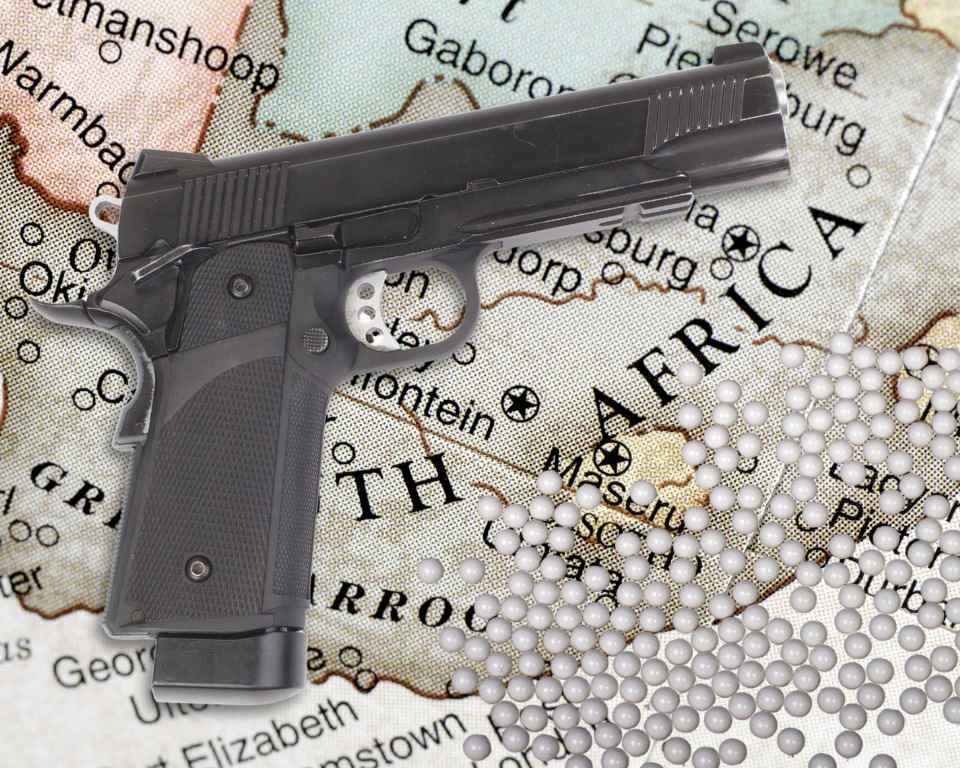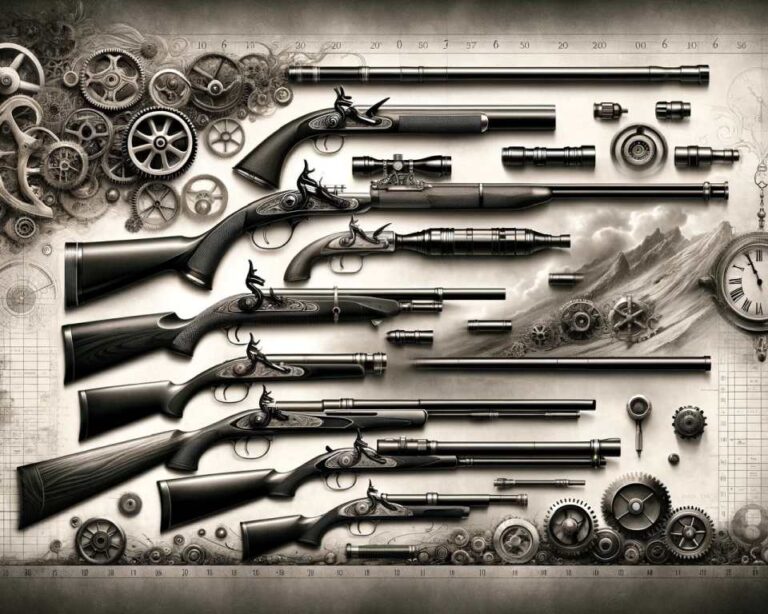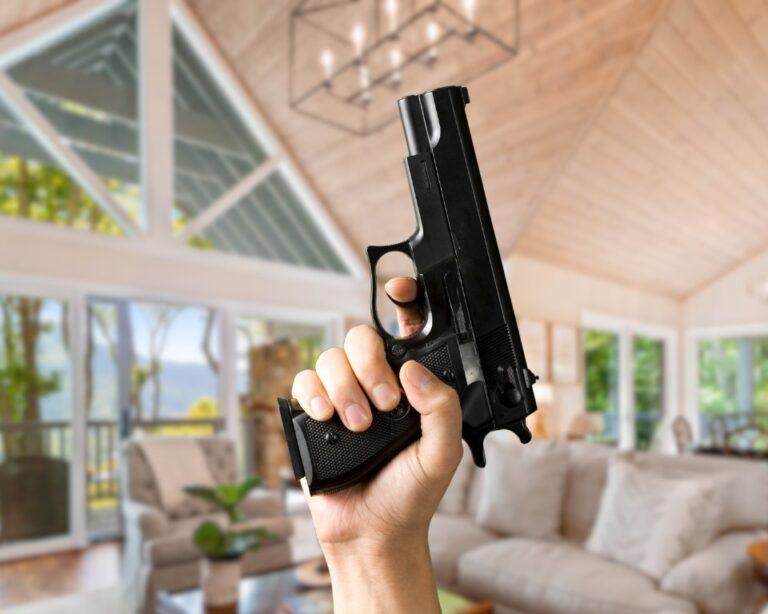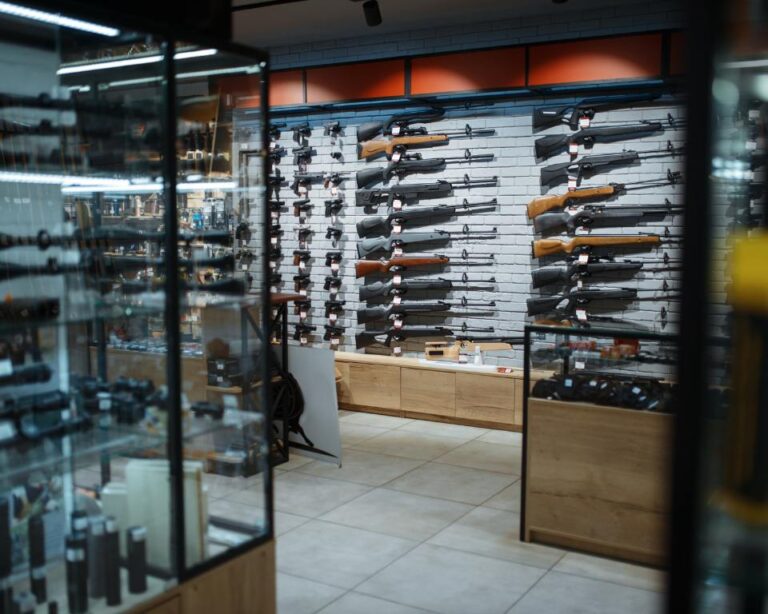Understanding Airgun Laws in South Africa
In South Africa, airguns are classified as non-lethal firearms and do not require a firearms license. However, it is important to familiarize yourself with the laws and regulations surrounding their use. According to the Firearms Control Act (FCA), an airgun is defined as any air gun with a caliber below 5.6mm or with a muzzle energy of less than 8 joules. Airguns that exceed these specifications are considered firearms and require a firearms license. The FCA also lists several offenses related to the negligent use and ownership of airguns, including causing bodily harm, handling a loaded airgun in a manner that endangers others, and discharging an airgun in a built-up area or public place without good reason. It is crucial to adhere to these laws to ensure responsible and legal ownership of airguns in South Africa.
Key Takeaways:
- Airguns in South Africa are classified as non-lethal firearms and do not require a firearms license.
- An airgun is defined as any air gun with a caliber below 5.6mm or with a muzzle energy of less than 8 joules.
- Airguns that exceed these specifications are considered firearms and require a firearms license.
- Negligent use and ownership of airguns can result in legal consequences and penalties.
- Understanding and adhering to the laws and regulations surrounding airgun ownership and use is crucial for responsible ownership.
Types of Airguns in South Africa
When it comes to choosing an airgun in South Africa, you have a wide range of options available. Here are the different types of airguns you can consider:
1. Spring-Powered Airguns
Spring-powered airguns are a popular choice for beginners due to their affordability and ease of use. These airguns rely on a coiled spring to compress air, propelling the pellet forward.
2. Gas Piston Airguns
Gas piston airguns, also known as gas ram or gas spring airguns, use a gas-filled cylinder instead of a coiled spring. These airguns offer smoother cocking, reduced recoil, and improved accuracy.
3. Pre-Charged Pneumatic (PCP) Airguns
PCP airguns are known for their high power and accuracy. They utilize a built-in reservoir of compressed air, which allows for repeated shots without the need for manual recharging.
4. Variable Pump Airguns
Variable pump airguns require manual pumping to pressurize the air chamber before each shot. They offer adjustable power levels, making them suitable for various shooting situations.
5. CO2 Powered Airguns
CO2 powered airguns use pre-filled CO2 cartridges to propel pellets. These airguns are popular for their convenience and ease of use, as they don’t require manual pumping or charging.
When selecting an airgun, consider factors such as price, ease of use, power, accuracy, and availability of gun parts. Researching reputable brands and visiting a local airgun store in South Africa can help you find the best airgun for your needs.
Enhance your shooting experience by investing in high-quality airgun accessories, such as airgun pellets and other shooting supplies. These accessories can improve your accuracy and overall performance.
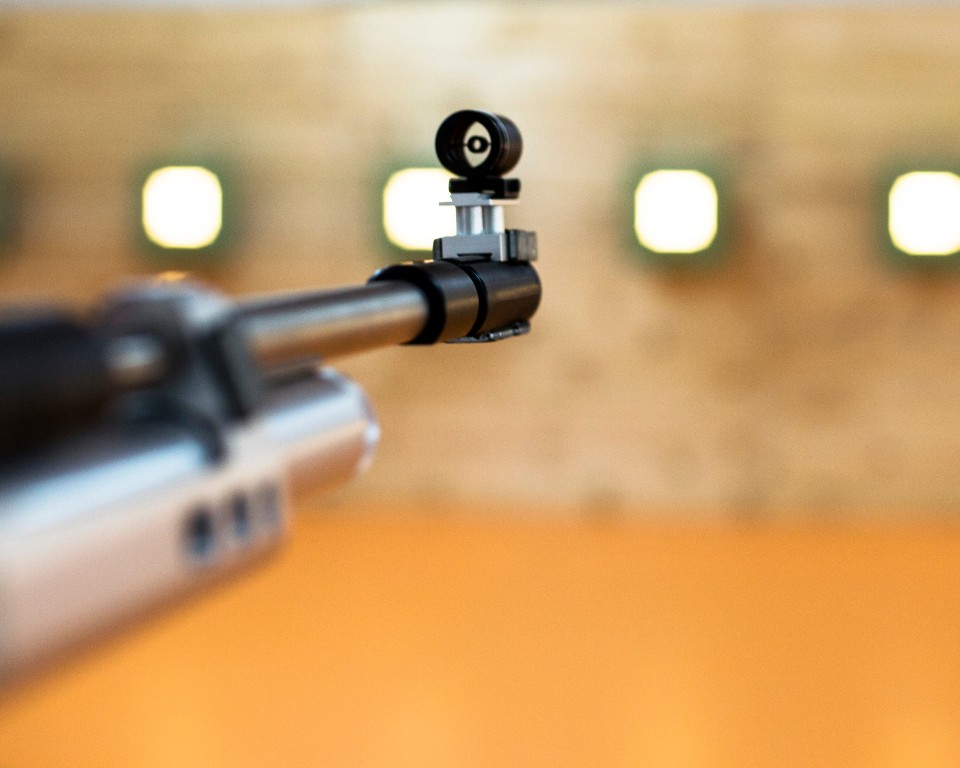
Airgun Safety and Responsible Handling
Safety should always be a top priority when owning and using an airgun. At our airgun shooting competitions, we emphasize the importance of responsible handling. Airguns should be treated with the same respect as any dangerous weapon or firearm.
When handling an airgun, there are common-sense rules that should always be followed:
- Always assume the airgun is loaded, even if you believe it to be empty.
- Point the airgun in a safe direction, away from people and property.
- Never load the airgun until you are ready to fire.
These basic safety measures help prevent accidents and ensure the well-being of yourself and those around you.
Additionally, it is important to take other safety measures when handling airguns:
- Wear appropriate eye protection to shield your eyes from potential debris or pellets.
- Use a suitable backstop or pellet catcher to prevent ricochets and keep the shooting area safe.
- Avoid the use of alcohol or drugs before or during airgun handling, as they can impair judgment and coordination.
Participating in airgun shooting competitions is not only a thrilling experience but also an opportunity to further develop responsible handling skills. These competitions provide a controlled environment where participants can showcase their accuracy, precision, and adherence to safety protocols.
Remember, responsible handling of airguns ensures the safety of yourself and others around you, whether you are participating in airgun shooting competitions or enjoying recreational shooting on your own. By following the principles of airgun safety, you can fully appreciate the sport while minimizing the risk of accidents or injuries.
Airgun Hunting in South Africa
Airgun hunting is a popular activity in South Africa, providing enthusiasts with the opportunity to enjoy the outdoors and engage in a challenging and rewarding sport. However, it is crucial to approach airgun hunting responsibly and in compliance with the necessary legal requirements and regulations.
When participating in airgun hunting, obtaining the appropriate permits and permissions is essential. Before embarking on a hunting expedition, it is important to secure written permission from landowners to hunt on private property. Additionally, hunters must possess a valid hunting permit and/or a license issued by the relevant provincial authority. These permits and licenses help ensure that hunting activities are conducted safely, responsibly, and within legal bounds.
South Africa has legislated game species lists, open hunting seasons, and bag limits that must be followed when engaging in airgun hunting. These regulations are in place to protect wildlife populations, maintain ecological balance, and promote sustainable hunting practices. It is imperative to familiarize oneself with the specific game species lists applicable in your location and adhere to the designated hunting seasons for each species. Furthermore, bag limits dictate the maximum number of animals of a particular species that can be harvested during a hunting season. Respecting these bag limits contributes to the conservation of wildlife populations and helps preserve the natural heritage of South Africa.
Different provinces in South Africa may have specific restrictions or guidelines concerning the use of air rifles for hunting. These regulations may include caliber restrictions, minimum muzzle energy requirements, or limitations on shooting distances. To ensure compliance, airgun hunters should be aware of and adhere to the specific laws and regulations applicable to their region of operation. By following these guidelines, airgun hunters can engage in a safe, ethical, and enjoyable pursuit of their passion.
In conclusion, airgun hunting in South Africa offers enthusiasts a thrilling and challenging experience. However, it is crucial to engage in this activity responsibly, obtain the necessary permits and permissions, and adhere to the game species lists, hunting seasons, and bag limits in place. By embracing ethical hunting practices and abiding by the laws, airgun hunters can contribute to the preservation of South Africa’s diverse wildlife while enjoying the exhilaration of the hunt.
Offenses and Penalties related to Airgun Use
Although airguns do not require a firearms license in South Africa, there are provisions in the Firearms Control Act that treat the use and ownership of airguns in the same manner as firearms.
According to the Firearms Control Act, several offenses are associated with airgun use that can lead to penalties and legal consequences:
“Causing bodily injury or damage to property due to negligence.”
“Handling a loaded airgun in a manner that endangers others.”
“Handling an airgun under the influence of intoxicating substances.”
“Pointing an airgun at another person without a valid reason.”
“Discharging an airgun in a built-up area or public place without justifiable cause.”
The penalties for these offenses can vary depending on the severity of the incident and may result in criminal charges and legal repercussions.
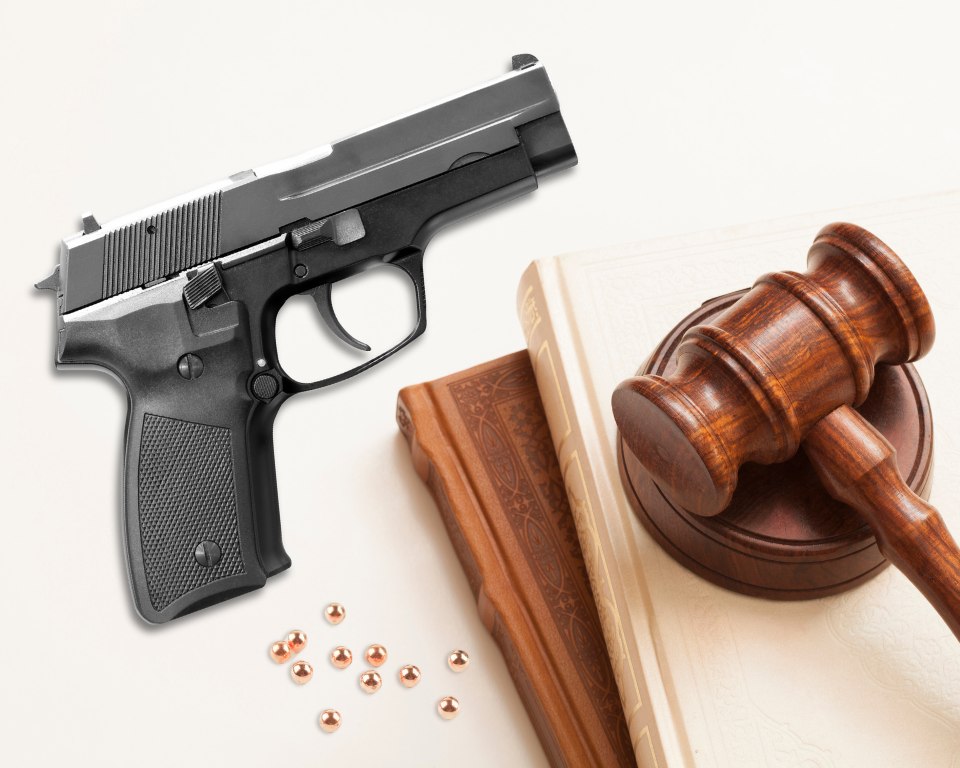
It is crucial to understand and adhere to these laws to promote responsible airgun ownership and ensure the safety of yourself and others.
Gas Guns and Non-Lethal Firearms
Gas guns, including airguns, fall under the category of non-lethal firearms in South Africa. These guns utilize compressed gas to propel projectiles, making them suitable for various purposes such as self-defense, pest control, and sport-related activities.
Unlike conventional firearms, gas guns do not require the same level of licensing. However, it is crucial to understand and comply with the laws and regulations governing their use to ensure responsible ownership and use.
When handling gas guns, it is essential to treat them with the same caution and respect as any other firearm. Proper safety measures should always be followed to prevent accidents and ensure the well-being of yourself and others.
It is highly recommended to receive training in the proper use and handling of gas guns. This training will not only enhance your knowledge but also improve your accuracy and overall shooting experience.
“Gas guns provide a versatile and non-lethal alternative for various applications, but it is important to remember that they still pose potential risks if mishandled or used irresponsibly,” says James Smith, a firearms expert. “By understanding the gas gun laws and adopting safe practices, users can effectively enjoy the benefits these firearms offer.”
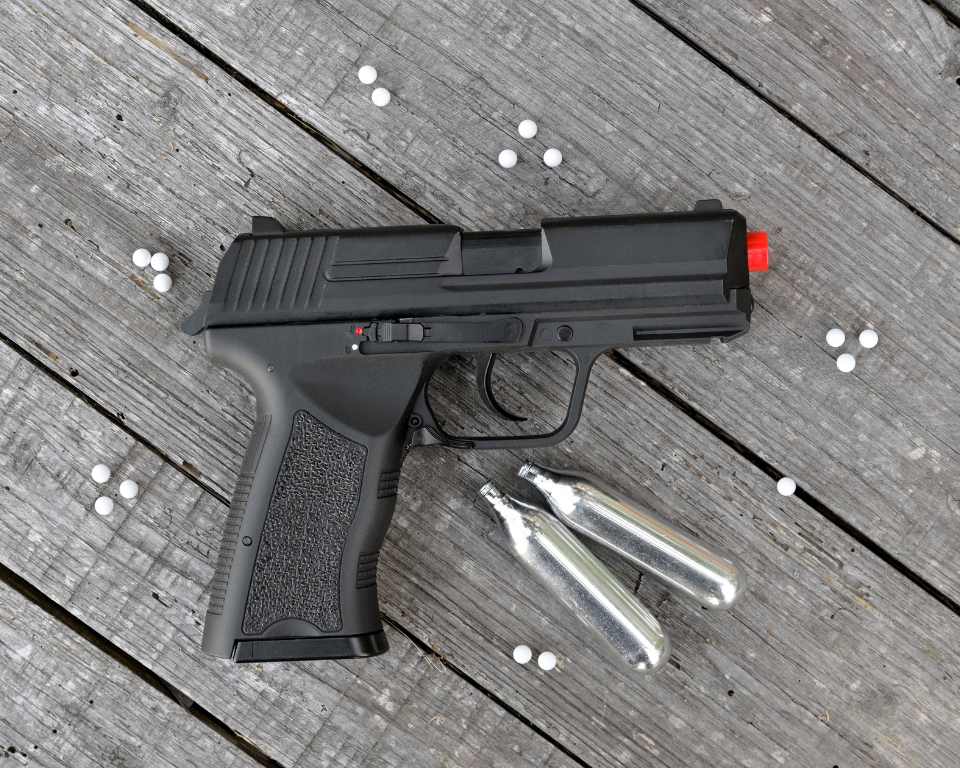
Compressed Gas and Safety Precautions
Gas guns utilize compressed gas as their propellant source, making it essential to handle and store these firearms with care. The gas canisters should be kept at room temperature and stored away from direct sunlight or other heat sources to avoid any potential safety hazards.
When loading a gas gun, ensure a secure seal between the gas canister and the gun to prevent gas leaks or other malfunctions. Always verify that the gun is unloaded before attempting maintenance or any other handling activities.
“Proper safety precautions are paramount when handling gas guns,” emphasizes Rebecca Adams, a gun safety instructor. “Responsible gun ownership starts with understanding how to handle these firearms safely and ensuring compliance with all relevant laws and regulations.”
Tips for Safe Handling of Gas Guns
When it comes to gas gun safety, following proper handling guidelines is essential to ensure the safe operation of these firearms. To start, it is important to store gas canisters at room temperature and keep them away from direct sunlight or heat sources. This helps maintain the integrity of the gas canister and prevent any potential hazards.
Additionally, when loading a gas gun, it is crucial to follow the manufacturer’s instructions to ensure proper loading procedures. This includes ensuring a secure seal between the gas canister and the gun to prevent any leaks or malfunctions during use. Always take the time to familiarize yourself with the specific gas gun model you are using and adhere to the recommended loading guidelines.
Furthermore, it is essential to prioritize safety by never pointing a gas gun at another person unless in a justifiable self-defense situation. Gas guns, like any other firearms, should always be treated with respect and used responsibly. Always be mindful of your surroundings and keep the muzzle pointed in a safe direction at all times.
Finally, proper storage of gas guns is crucial when they are not in use. This helps prevent unauthorized access and ensures the safety of those around you. Consider investing in a secure gun safe or lockable storage cabinet to prevent any accidents or misuse. By following these tips and guidelines, you can ensure the safe handling and operation of gas guns in South Africa.

